Religio Political
The term “Religio Political” is a direct reference to the Union of Church and State.
For many the significance of this union will not be immediately apparent, and it is for that reason that I intend to focus considerable time and attention in the study of this most important subject.
There is a push from many circles to overthrow the Constitution of the United States, and most significantly articles 1 and 2 of the 1st Amendment to the Bill of Rights.
Which declares: Congress shall make no law respecting an establishment of religion, or prohibiting the free exercise thereof;
It will be the focus of this, and subsequent pages in this study to prove to the reader beyond any shadow of doubt, that the usurpation of these two articles of the Constitution of the United States of America, represents the raising up of the Image of the Beast, as spoken of in Revelation chapter 13 and verse 14. The consequences of the raising up of this image being explained in verses 15-17.
“14 And deceiveth them that dwell on the earth by the means of those miracles which he had power to do in the sight of the beast; saying to them that dwell on the earth, that they should make an image to the beast, which had the wound by a sword, and did live.
15 And he had power to give life unto the image of the beast, that the image of the beast should both speak, and cause that as many as would not worship the image of the beast should be killed.
16 And he causeth all, both small and great, rich and poor, free and bond, to receive a mark in their right hand, or in their foreheads:
17 And that no man might buy or sell, save he that had the mark, or the name of the beast, or the number of his name.”
The videos included in the playlist on this page provide significant light to the viewer on many issues of interpretation, as well as the legality and the force of the United States Constitution. religio political
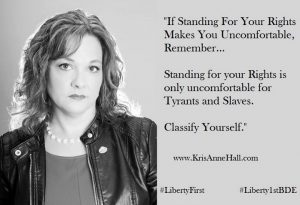 These videos are the work of ‘Kris Anne Hall’ a Constitutional Lawyer who was removed from her position in the Government because the Government took issue with her ideals of bringing the truth to the people. religio political
These videos are the work of ‘Kris Anne Hall’ a Constitutional Lawyer who was removed from her position in the Government because the Government took issue with her ideals of bringing the truth to the people. religio political
Kris Anne now tours the Country, educating and lecturing on the facts; facts that the American people should be aware of, and I find it most fitting, and a privilege to post Kris Anne’s work on this website to commence these most important studies. religio political
The following is a transcript of a video entitled “Beyond The Sound Bite,” which is the product of an interview with Kris Anne by Jason Stapleton for his YouTube Channel. religio political
You can check out Jason’s channel here https://www.youtube.com/user/jasonstapletonshow
and Kris Anne’s website here Krisanne Hall.com
Jason: Well hello everybody and welcome back to beyond the Soundbite, this is new interview series and I’m doing here today with Kris Anne Hall who is Christian, Constitutional Attorney, she is a Russian linguist, an Army veteran, a what mother, a pastor’s wife and she spends her days now travelling around the country talking about the Constitution and educating everybody from legislators to everyday Americans, on what the limitations of government are, and how they can begin to turn the tide and bring us back to a more constitutionally central government. Did I say that fairly, was that pretty good? religio political
Kris: Pretty good, I teach everybody from middle school to high school students, college students all the way up to legislators and law enforcement. religio political

What's Really Going on in Oregon! Taking Back the Narrative ! KrisAnne Hall

Kris Anne Hall Beyond the Sound Bite

Mixing Politics and Religion

Kris Anne Hall The Constitutional Role and Duty of State Legislator
-
What's Really Going on in Oregon! Taking Back the Narrative ! KrisAnne Hall
-
Kris Anne Hall Beyond the Sound Bite
-
Mixing Politics and Religion
-
Kris Anne Hall The Constitutional Role and Duty of State Legislator
Kris: no I was in Haiti religio political
Jason: yeah and you were; you just decided to pick up the cell phone and start recording, and it was just you know-boom-boom-boom, and I linked to it and mentioned it in one of my shows, and ‘linked’ the video to everyone, and I said I have got to get her on the show, and then you ended up, or I found out a little bit later on that you were here in Kansas City in the area, and I immediately called your assistant. She was inundated apparently religio political
Kris: Yes
Jason: phone calls, and requests, and we managed to pick you up, and I’m so glad that you’re here and sharing your knowledge and expertise with us. But I I thought we would start just by talking a little bit about where we were at, because lets talk specificaly about the supreme court. Because the Supreme Court has made itself the arbiter of what is constitutional and what isn’t.
Kris: That’s right.
Jason: And I’ve always found that belief, that the supreme court gets to decide what’s considered constitutional given the fact that the Constitution was created to bind down the three branches a federal government, one of which being the the supreme court in the judicial branch. So does the Supreme Court? Is that part of their mandate in the Constitution to interpret the Constitution, and if not how did we get there? religio political
Kris: The job of the of supreme court within the language of the Constitution is to be the arbiter in the judge for things that have been made federal, a lot of times people read that language in the Constitution and and talk about the the duties of the supreme court, and the the federal courts and then they stop; before they get to the end of the statement, and in the end of the statement it says “on matters made Federal” So the only thing that the Supreme Court has real jurisdiction over are the powers that have been delegated to the federal government. They don’t have jurisdiction over state matters, they don’t have jurisdiction over internal state matters, they only have jurisdiction on matters made federal, and that’s a very limited number of thing.
Jason: Those are the enumerated powers laid out inside the Constitution.
Kris: That.s right. religio political
Jason: So how do we get from a place where that is the original intent, and the the Supreme Court now chooses to rule on virtually anything that they decide they want to have a hand in.
Kris: Well interestingly enough that’s just the way it works throughout the centuries, and our framers knew that. Throughout the centuries one of the mechanisms of the courts, our government, to take power from the people, and consolidate itself is through the corruption of the court systems, because it’s the easiest way, people want to think that the judicial system is an independent tribunal, an independent entity that will be somehow neutral in all these decisions
Jason: Fare and uncorruptable
Kris: Exactly, and which is ironic because throughout history that is the exact opposite. Part of what I teach is the history of the Constitution and in that history there are 700 years that it took to write our Constitution, our declaration of our independence and our bill of rights are built of five documents written over 700 years that formed the British constitution. There’s nothing new or novel in any of our documents, and as a matter of fact everything in these three documents can be traced back to these five, and the reason that we kept having these revolutions against Kings for 700 years is because after a certain period of time the King would co-opt the court system replacing judges who wouldn’t follow the law but would follow the king, and so our framers by creating a federal government with the judiciary and then believing that they enumerated specific powers to keep it bound in a box, felt like they were building enough protection of the people’s Liberty. But you know they said something else they realised that the Constitution is what they call the parchment barrier, meaning the Constitution and I know this is offensive to some people to say, but the truth of the matter is and our framers knew that our Constitution is nothing but a document with ink on it, and they knew that our Constitution could not stop the government. That’s why they call it a parchment barrier, it’s just paper, it means noting.
Jason: It’s just words on paper religio political
Kris: right, so they expected the people to be jealous-jealously watching the federal government, diligently protecting their liberty, and they would be the stopping block and the Republic is what makes the difference.
Jason: when you say the people talk to me about what? In a sense the state’s came together as independent states, and said we want to join into a union, if I understand my American history correctly, we want to join into a union and they formed the Federal Government, used the constitution in an attempt to bind down the the Federal Government, so when, but many times inside the Constitution it says ‘the people’. Does the Constitution specifically refer to individuals, or do they refer to the states, is it is it an individual’s responsibility, I guess to when the federal government circumvents its authority is it the individuals responsibility to stand up to that oppression, is it the state’s responsibility, should the state be providing cover for the individual, what was the expectation of the founders when when they drafted the Constitution, who was who was physically going to be the check?
Kris: Well the simple answer to that is yes; because everything that you said is absolutely correct, because government has no power without the force of the people, government doesn’t exist without people, remember governments are instituted among men deriving their just powers from the consent of the governed. The thing that makes us different from the kingdom’s that we came from, is the fact that we are a Republic, we have uh, oh and and I’m laughing because you covered like, 12 years of history in that one little statement, and so what we need to realize is that the State’s created the Constitution. The Constitution is a contract, it’s a contract between the states, that created the Federal Government, so the Constitution really is not just a limitation of the federal government; it is the creation of it, because without the Constitution, the ratification of the Constitution there would have been no central government. religio political
Jaon: Does that mean that: because we got a huge libertarian audience, and when you call yourself a libertarian your painting yourself with this enormously broad brush, and so we have many people who fall much closer to a constitutional libertarian, and others more towards in anarcho-capitalist kind of libertarian. Is it true, would be a true statement to say that even though the Federal Constitution binds down the Federal Government, that the Independent States do have the authority to do some things like control gun ownership for example, like who has the right to bear arms, does the Individual State have the right to do something like that? religio political
Kris: Well that’s that’s a pretty deep question actually because it goes into an understanding of the Constitution and the Bill of Rights, that we have been extremely negligent about in America. We have this argument of, does the Constitution bind just the Federal Government, or does it just bind the States, or are the State’s brought in: how does that work? And the reality is that we’re not asking the right questions, the Declaration of Independence see our States were created on July 2nd 1776 through the ratification of the Lee resolution. The Declaration of Independence announced the passage of the Lee resolution, declared to the world what we had done. And in the Declaration of Independence it says we hold these truths to be self-evident, that all men are created equal and endowed by their creator with certain inalienable rights, and that to secure these rights, Governments are instituted among men deriving their just powers from the consent of the governed. And when any form of government, becomes destructive of these means. So our rights do not come from government, and they do not come from documents, the only reason we create any government on the planet is to secure our rights. And when any form of government becomes destructive of our rights, it is the right then, and the duty Jefferson would say latter, of the people to alter or abolish it. So what we have to really understand is what are the inalienable rights of the people? Samuel Adams: Samuel Adams wrote in 1772, he said: ‘Among the natural rights of the colonists are these; first life, secondly Liberty, third property, together with the right to protect and defend them in the best means possible’. Because if you don’t have the right to life then you’re dead, if you don’t have the right to Liberty, then you’re a servant, if you don’t have the right to secure property, then there’s no way you’re going to live, and you are subject to whoever owns the property that you have. If you don’t have the right to defend these things, then your a slave, if you don’t have the right you have to ask permission, so if I have to ask permission to the government to protect my life my liberty and my property, then I am NOT a freeman. And so the question is; Do the states have the authority to control gun ownership? I would say no; because it’s an inalienable right, the problem is you lose your Liberty when you harm somebody else. If I use a gun to hurt you, then I have forfeited my Liberty, that’s why…
Jason: Why?
Kris: Because that’s the natural law. Natural law; as John Locke explains it and our framers go on again is that Liberty knows no bound, other than that you cannot harm another. Because then if I can freely take your life, then you no longer have a right to it. So it requires: See Liberty and Freedom are not the same thing; Freedom means; I’m free to lie, and I’m free to steal, and I’m free to murder, I’m free to do whatever I want to do. Liberty is freedom plus morality; Whatever is that moral compass that says I am free to do whatever I want; But you know there’s some things that I won’t do because they’re wrong, there’s some things that I won’t do because I don’t want somebody else to do them to me, and it’s a respect, for someone else’s property boundaries. And in the eyes of our framers property wasn’t just the place where you stepped your feet, property, um, James Madison wrote a brilliant paper on property, and 1792 I think. He said property is not just land, property is the product of your labor, the property is your opinions, property is your religious beliefs, property is your expression of those religious beliefs, property is everything that you yourself conceive and use and make. And he said; this is not a just government when government can take that property from you. And so we have to understand that on an individual level; I don’t have the authority to reach into your pocket and take your money, for me that’s not right; is it? No that would be wrong, all Government power emanates from the individual, the government has no power unless the individual possesses it. But when a Government becomes unlawful, is when it starts doing things to people that I can’t do to you. religio political
Jason: Let’s talk about what’s going on in Oregon because I know that you’re headed up there, that you’ve been invited by a group of the landowners to talk and discuss what the true limits of what the Government’s authority to own land are, and in watching the video that enticed me to give you a call, you made a lot of very intriguing points about the government’s ability, or lack thereof, to own land outside of Washington D.C. Can you kind of share with me a little bit about what the government has done, how they have violated the Constitution, and what you think needs to happen in order for things to be made right?
Kris: Well the Constitution like I said before is a contract, and in interpreting the contract we have to remember that there are certain principles of interpretation laid down in contract law for centuries, and the very first principle of interpreting contract law is that you have to go to the drafters of the contract, the legal principle called the meeting of the minds. So lawyers and judges when they want to understand how a contract works they don’t get to sit around and make it up as they go. By law they have to go to the drafters of the contract to understand the segments in the contract, the language in the contract, the application of the contract. Well the irony is that the Constitution is the only contract in the United States where judges and lawyers refuse to apply Contract Law. But Contract Law dictates that if we want to understand how this power works; because the Tenth Amendment tells us that the powers not delegated to the Federal Government are reserved to the States and to the people. So what power went where; how do we know? Well we go to the drafters of the contract; which are the Federalist Papers, the anti Federalist papers, the notes that Madison kept on the debates, the letters that they wrote to each other, they weren’t doing that because they were vain, they were doing that because they were establishing legal record. Madison explains something very important in Federalist 45, he says the powers delegated to the federal government are few and defined, they are external objects; war, peace negotiation, foreign commerce. And he says “the powers reserved to the states are everything else”, and he makes a list, and right there enumerated in that list is property. Property is reserved to the States, even Jefferson in speaking about Territory said that Territories were held in trust by the Federal Government on behalf of the States, and once they became States then the Federal Government was to never exercise authority over that property again.
Jason: What do you say to the person who says, well yeah how can you if the Federal Government purchases Territory, in my mind if the Government does not have the right to own property, then it shouldn’t have the right to purchase property. therefor things like the Louisiana Purchase would be in a sense, unconstitutional, and illegal for them to make such a purchase. Am I correct in that assumption, were there mistakes being made in terms of Constitutional Interpretation that for back, or something I don’t understand. religio political
Kris: There were mistakes being made about constitutional interpretation from the very beginning, in 1798 James Madison was arguing before the Congress through the house of representatives that they can’t take the money from the people in the name of taxes and subsidize private industries. So from the very beginning Madisons saying; look you guys are trying to use this general welfare clause in a way that we never intended, and then John Adams; you know he jumped the rails with the Alien and Sedition Act, and so what we have to understand is these men, once they got into power, sometimes things went a little crazy. So it’s a whole different story when you’re a man and you’re wielding power and you have to be checked.
Jason: So you’re saying that the mere purchase of Territory is unconstitutional, am I understanding, I mean I want to clarify what you mean, because the the quote you just said was the Territories are to be held?
Kris: Well okay; so article 4 section 3 clause 2 mentions that the Federal Government has the authority to have Territories ok,
Jason: Okay
Kris: so in his article 4 section
Jason: what does that mean, what does that mean? Help me clarify.
Kris: A territory which article 4 section 3 clause 2 the “Territory” if you look at Grammar meant a lot to our framers, they didn’t do anything by accident, so Territories is capitalized; and that’s not just, ‘Whatever you want it to be’. Territory is the land that has been purchased by the Union, okay because the Federal Government doesn’t really exist outside the authority of the Union, so the Territory is land purchased by the Union, to be held on behalf of the States, so that we could have a way to expand the United States and bring new States in. religio political
Jason: So that wasn’t a purchase made by the Federal Government then, it was a purchase made by the collective States??
Kris: Okay so here’s the problem in the way that we think.
Jason: Right and there’s something I’m not getting.
Kris: Who is the Federal Government?
Jason: Well its the Sates, right?
Kris: Right; So the fact, legally constitutionally speaking, there is nothing that the Federal Government does of its own accord.
Jason: But they have that they have the ability to tax correct, so this is
Kris: Not of their own accord.
Jason: Okay
Kris: Everything that the federal government does is done through the House of Representatives and the Senate.
Jason: Right
Kris: The House of Representatives is the direct representation of the people, and the Senate, prior to the 17th amendment was supposed to be the direct representative of the State.
Jason: Right
Kris: And so anytime taxing and spending, which is solely left in the House responsabilty, under article 1 section 7, was to take place is because it was done through the consent of the people, and anything done on behalf of the State’s was done through the Senate, that’s why Treaties require two-thirds of the Senate to agree, because a Treaty is an agreement between the States as a whole, and a Foreign Government. religio political
Jason: Right
Kris: So we have to sort of shirk off this mindset that we have that the Federal Government is some kind of an independent entity, that runs around and does what it’s supposed to do. It’s part of the reason that it’s jumped its rails, we’ve given it we’ve animated it with a life that it just simply doesn’t possess.
Jason: Well it really has kind of become its own thing.
Kris: Yeah absolutely
Jason: Because you go and you have your election, and we’re in the middle of one right now and unfortunately I get the feeling that this election is going to be a lot like every other one we’ve seen. Where we elect a bunch of people who promise us what we want to hear, and then they go and disappear for the next two to six years before they come back and tell us again, that they’re in a sense, they’re agents for the Federal Government. Their in no way tied to the States, other than the fact that they have to come back to their home district. And I guess, let me shift gears and ask a different question, I will roll back around because I really want to talk about what the solutions are, and I know you’ve got a great book where you cover a lot of the solutions. But I want to ask a little bit about agencies in the Federal Government. I find one of the most aggravating things to me, is when we look at agencies, that write, not legislation but write rules for how companies can conduct themselves, who write penalties for fines it will be incurred, who oversee and and check on companies to make sure that they’re following the rules that these agencies setup. And these agencies are a collection of unelected bureaucrats who in a sense operate beyond our reach as individual Americans to have any effect on. Was that a part of the Founders intent for the Constitution, or is this a matter of Congress delegating its authority illegally to a third party?
Kris: It was absolutely not an intent, and it’s not in the Constitution, as a matter of fact of Government regulation of private business on all levels was particularly offensive to our framers, it’s one of the reasons that we engaged in our independence. If you read the Declaration of Independence, there’s a grievance against regulatory agencies right in there, he is established a numerous new offices sending hither forth officers to eat out our substances and it was all about the Government coming in and and raiding our businesses, and regulating our businesses, and and in taking our rights away. Because you see when government regulates business, you don’t own your business, you merely operate your business at the permission of the Government, because it just takes one regulation that you can’t, or won’t comply with and then you have nothing. you have no livelihood, but it is even more so not in the Federal Constitution because there is no power delegated to the Federal Government to do this. Remember; Madison tells us in 45 that the powers delegated to the Federal Government are external objects, war, peace negotiation, foreign commerce. Everything else is reserved to the States, the lives, the liberties, the properties the prosperity, the internal order, and improvement of the State. That’s what he says, all these things, everything else. EPA, is Not, ‘war, peace negotiation, foreign commerce’ it is not a foreign action, the FDA the ATF the Department of Education the Department of Energy, Department of Interior. All of these powers are powers that are to be
reserved in the States, they are not delegated to the federal government at all. So they’re completely unconstitutional from the get-go. And then the fact that we operate regulation with the force of law
we have now created a situation where we have legislation without representation because you know those regulations are written by no one you’ve elected. religio political
Jason: And that’s the way I’ve always seen it I’ve seen that as a gross, I mean that’s the very thing that we fought a revolution for, was to be able to be represented and have our voices heard, and now we have untold number of bureaucracies: We even took a look at agencies and the federal government doesn’t even know how many agencies it has, it has so many, and sub agencies, and sub-agencies inside of that, and you have no representation there anymore.
Kris: Well that’s why part of what’s going on with the politics in Washington DC is just an illusion, the house alone has the power of the purse. So all budgets are controlled by the house, article 1 section 7 says that the house will control the purse, it says the Senate may offer amendments; but amendments offered by the Senate don’t have to be accepted by the house. So the house budget is as it stands, and as a matter of fact there is no constitutional authority for the president to have a veto over the budget, the president has no say over the budget whatsoever, constitutionally. So if our conservatives in the house really did not like Obama-Care, really did not like the actions of the EPA, or any of these other agencies they could de-fund them tomorrow; and they should because they’re unconstitutional, there’s no authority for them. And can you imagine if we operated constitutionally, all these agencies that nobody even knows how many exist would not exist, the Federal Government wouldn’t need the money that it asks for, all that money would be put back into the States, the States would have control over their land. the States would have control over their businesses, the States would have control over the environment, the States would have control over whatever it is, tobacco whatever industry whatever they would have the opportunity to have that control, and our Framers wanted that in the States, because you have control over your county commissioner, City Councilman
Jason: The closer they are to you the more control you have over them
Kris: So all we have in the Federal Government is a machine built to maintain its power, to maintain its authority, to actually expand its power and authority. If we did not have unconstitutional Federal Agencies, executive orders would be no big deal.
Jason: Yeah because there’s no way to enforce them. I looked at one for example that’s really bothered me, because we took a look at the recent Obamacare, or sorry not Obamacare but Obama’s recent executive order on gun control, and what I have found is that Congress intentionally writes vague law, that way they can be nonspecific, they then turn it over to an agency to interpret, and to write regulation and rules for, further keeping them away from having to be responsible for it.
Kris: That’s the whole thing, (Mocking) its oh no it wasn’t us. religio political
Jason: (Mocking) No that’s not what I meant you know they have that shame on them for doing that re-elect me.
And you’ve got Obama comes in and he comes in and he essentially, from what I can tell in reading the documents; muddies the waters. It says well you have to register as a gun dealer if you make money selling guns, however you don’t necessarily have to make money to be fined, and these are felonies, and there is no standard by the number of guns that you have to sell before you qualify, there’s essentially no standard, it’s a vague law, it’s a piece of paper that essentially says to the holder, ‘I can do whatever I want’. So I’m going to come in as an individual working for an agency and I’m going to look at what you’re doing, and I have all of the freedom and liberty that I want to decide whether or not you’re going to fall under my boot; or not, and when we show up in court for me to challenge you after you stepped all over me. I have no ground to stand on because the the document, the executive order that the law that was written was so vaguely written as to be interpreted however the agency saw fit, is that what, have I fairly well encapsulated it?
Kris: It’s even worse than that to be honest with you, because if you challenge a federal regulation you don’t go to a regular court, you go to an administrative law court, and their administrative law court is built by the agency that created the regulation, whose judge is employed by the agency, whose only job is to determine whether the agency followed its regulations or not
Jason: So the agency has its own courts system and they determine it.
Kris: Oh yes its a complete extra-Constitutional unconstitutional court system, and as a matter of fact we have had people challenging the EPA, and they have challenged the EPA all the way to the Supreme Court, and the decision before the supreme court was whether these people had the right to sue the EPA beyond the administrative law courts or not. So they had to take an administrative law challenge all the way to the Supreme Court, for the Supreme Court to say okay now you can sue the the EPA, and then they have to start the proccess all over again. It’s completely tyrannical and the bottom line is this; they have no authorization to exist. Alexander Hamilton who is our biggest government guy, that’s involved in the writing of the Federalist Papers and all of this. Who by today would be considered a conservative based on big government standards; he wrote in Federalist paper 78, he said no law contrary to the Constitution can be valid, he said, and then he gives this warning. ‘If you allow laws contrary to the Constitution be valid he said you will allow the deputy to be greater than the principal, the servant above his master, and before too long the representatives will feel themselves superior to the people themselves.’
Jason: And this was Hamilton; Hamilton was not a small Government guy. he very much believed in strong central power
Kris: Yeah but by our standards
Jason: But not even by our standards, and yet he would still be a conservative.
Kris: But his closing statement and that idea was and what you will do is you will set people up to live in a government where the government will not only seek the power to do things it’s not allowed, or it’s not entitled to do, but it will then do things that it is absolutely forbidden to do, ‘gun control’ is absolutely forbidden.
Jason: Well that’s where we are now
Kris: Absolutely forbidden; ‘absolutely’. And why? And it’s not because the Constitution is inadequate. religio political
Jason: Right
Kris: It’s because the people have failed to be diligent, have failed to protect their liberties, we don’t know what Liberty is, we can’t define it, so we can’t defend it. And we have lost the proper structure of a constitutional republic. Our state’s have been turned into colonies, and we have been subsequently turned into subjects where we all feel helpless and overwhelmed because we’re alone fighting the government. It’s not supposed to be that way, we’ve come full circle now because one of your first questions was. Do the people stand alone, or are the States supposed to be doing that? Well the answer is the people have to stand alone when the State’s won’t. But the whole purpose of creating the State’s was to secure our rights and to maintain, because remember the state’s created the Federal Government and the states were supposed to be keeping their creation under control.
Jason: Well you’re taking a very revolutionary tone now with that statement that the people must stand when the States will not, so let’s talk a little bit about solutions.
Kris: Revolutionary: you know I’m called radical to but it’s realy sort of interesting that ideas that have been mainstream for hundreds of years and now in our little brief period of 50 years is now termed radical.
Jason: Know and I couldn’t agree more with your interpretation of where we are, and I think that most of the people who watch this show are going to be staunch supporters of what you’re saying and what you believe, and with what we advocate every day on the program. But how do we; a lot of people been talking about Constitutional Conventions,there are some people, who in Oregon have decided that the best thing that they can do is an armed standoff, what’s the right decision, and talk to me about the book, the book is ‘Sovereign Duty’ you can pick it up on amazon, or you can pick it up on your website krisannehall.com. but talk to me about the solutions; how do we get back because it’s, and I don’t? We built this monster, we allowed this monster to grow thousands of agencies, the Government circumventing its authority at every turn. The President just deciding to arbitrarily ‘write law’ for lack of a better term. How do we get back to where we need to be?
Kris: Well, Samuel Adams said: No people will painly surrender their liberties when knowledge is diffused, and virtue is preserved, he said on the contrary, when a people become universally ignorant and debauched in their manners they will sink underneath their own weight without the aid of foreign invaders. We do need a revolution in America, but it’s a revolution of the mind, we don’t need a bloody revolution because we’re not a kingdom, we are a constitutional republic, there are peaceful means by which we can take back our control, and put Government back in its intended, and created limited defined box.
Jason: What are they?
Kris: So first we have to understand the Sovereignty of the States, and the obligation of the States to keep the Federal Government in his limited box, in order to preserve the Republic. So there are on the on the State level, there are two options. The states must refuse to comply with any Federal law or any Federal regulation that is not specifically enumerated and authorised in the Constitution; not by opinion of the courts, because the courts do not have the authority to expand the power of the Federal Government.
Jason: Right as we discussed
Kris: Yeah, Madison said in 1800, he said, if the decisions of the judiciary be raised above the Sovereign Authority of the States, then the judiciary will become just as tyrannical as the executive, or the legislative, because we created three branches of Government, right? legislative executive and judicial.
Jason: What you’re saying is it doesn’t matter what the Supreme Court says.
Kris: No it does not.it does not
Jason: The States can say, look we don’t care what you say, we’re rejecting your opinion and we’re going to do whatever we want.
Kris: Can I say Bravo there.
Jason: Yeah
Kris: Because it’s an opinion.
Jason: Yeah
Kris: Too many times we have people running around talking about court rulings, and courts making law, courts don’t issue rulings. Kings issue rulings, courts issue opinions. Courts can’t make law, if courts make law that is a per se violation of separation of powers and is right off unconstitutional. How many people have you have heard say, abortion is the supreme law of the land?
Jason: Yeah.
Kris: It’s not, it’s an opinion by the Supreme Court, there’s been no legislation passed, no law. It was an opinion by the Supreme Court, and yet because we have been raised through our education system since 18, well probably since 1818, to believe that there’s a judicial supremacy we have by default created an oligarchy, and that’s not who we are supposed to be.
Jason: So the first thing that needs to happen is the States are going to have to step up then you’re going to have to have legislators at the State level who are willing to look to the Federal Government and say no more.
Kris: No more
Jason: We’re just not going to accept it anymore.
Kris: No you don’t have any authority in the Constitution to regulate firearms, so your firearm laws are not applicable here, you have no authority in the Constitution to regulate an environment of the State, we are fully capable of maintaining our own land and our own environment, and just take back the powers. Don’t listen to the Federal Department of Transportation, take care of it yourself
Jason: I’ve always wondered why somebody, a governor or a legislator in the legislative branch in the States didn’t just stand up and say, Nah we’re just not gonna do that. Yeah we heard what you said, but no, and watch what happenes because the the Federal Government would have no recourse other than violence.
Kris: They don’t even have that recourse; really, because in truth they don’t have the manpower the resources to inflict violence on the States. They rely on co-opting the State and local governments to do their bidding for them. I mean look at Kansas: Kansas passes a law that says there will be no Federal Firearm laws enforced in our State.
Jason: Yeah
Kris: Eric Holder writes Kansas a threatening letter, Cobarch writes back and says hey we see you have an opinion, but your opinion means nothing to us because we are a Sovereign State, and if you don’t like the way we think, the way we’re doing things, and you don’t like our stand, why don’t you just come back to Kansas and see what you can do about it. We’re not watching on FOX or CNN the troops coming into Kansas; because they’re a schoolyard bully.
Jason: Gotta love that Kris Kobach’s huh
Kris: I’m speaking at the Tenth Amendment dinner and Topeka tomorrow night and we get to speak together, and I was on his radio show the other day too.
Jason: he was one of the first guests that I had on my radio show, on my podcast and he does have the radio show on the weekends. I remember when he ran for Senate, or Congress with all those many years ago and I had a chance to meet him, I’ve always liked him and and it’s good that we’ve got somebody like him fighting the Federal Government here in Kansas. But ok so let’s say that we get to that point, and now we’ve got, is that enough, is it enough to just say it sounds like, if we could just get enough States to say go screw yourself, we’d be done with it.
Kris: It obviously isn’t as simple as it sounds because we have State legislators that don’t believe they can do their job without the Federal Government, and we have a local Governments as well that don’t think they can do anything without Federal money, so we’re going to have to pull the plug on the addiction. We’re going to have to convince people, and the irony is that people are unplugging and local Governments are unplugging, State Governments are unplugging and they’re finding out that if they refuse Federal money they’re actually making more money, they have more revenue than if they take it. Because compliance with the Federal regulations costs more than the money they get, that’s the whole scheme with Obamacare, you get all this funding for the first three years and then after the first three years the Federal Government doesn’t give you any more funding but you’ve still gotta fund the whole program. it’s just a racket.
Jason: That’s something only program they do that with and I think that
Kris: Oh Yeah, the education part programs are rifled with it.
Jason: Right, and they do this pass through where they tax the people at the Federal level, then they redistribute that money back to the States, the State’s become reliant upon that cash, and they think that’s the first thing the federal government wants to do is pull the money away if you don’t do what we say, we’ll take the money back, and that, in a sense ties the States to the federal
Government and makes them complicit.
Kris: Yeah and we’ve got to educate, like Samuel Adams said, we’ve got to diffuse the knowledge necessary to embolden the people to tell their legislators we don’t want this money, we got to get our school board’s unhooked, we got to get our County Commissions, our City Councilman unhooked, we got to get unhooked. That’s just the whole problem, and that’s not going to come without the proper education.
Jason: What about the constitutional convention; are you a fan of something like that?
Kris: Well the Con…
Jason: Bring the state’s back to, in a sense, rewrite the Constitution. it seems to me there’s a lot of pros and cons to that, because if you have a State Convention where you’re going to write amendments. I think that Mark Levin wrote a book recently where he outlines with the changes he would make and you open up that Pandora’s Box there’s a risk you may get a lot that you don’t want.
Kris: Right, and well; If you’ll allow me to speak very precisely because there are certain different ideas about what we’re talking about, and some of them simply are error, so we will be very specific about the way we speak. Article 5 in the Constitution is the only means by which we can legally amend the Constitution, and so what we are what we are talking about is the portion of Article five where we call a convention of the states
Jason: Right
Kris: Okay, there are other camps that want to do it other ways, but if you are not following article 5 then you are illegally attempting to amend the Constitution
Jason: Okay
Kris: So, article 5 was placed within our Constitution by our framers as a means to amend the Constitution: Not without controversy! Our framers had a lot of concerns about article 5 Convention. George Mason was very concerned that Congress would usurp the whole process robbing the sovereignty of the states and then just amend the Constitution to favor the Federal Government. James Madison was afraid of who would become the delegates in a convention, and just to paraphrase Madison’s argument, he says look, the only reason we’ve been able to successfully have this Convention is because we just came from a bloody revolution, and that the horrors of what we saw have allowed us to stay focused on Liberty. We’ve been able to have men put aside their ambitions and their greed and their averace and focus on the good of liberty, and Madison says I fear in the future without that kind of motivation a Convention would simply devolve into a political circus. You would have, he says the delegates would be built of the same people who created the problem asked to fix the problem it would be nothing but a bunch of people getting together who wanted to enrich themselves in power and wealth and influence and and it would be a political battle, and not a battle for liberty. And so I believe that if we’re going to engage in a Convention we’ve got to make sure that we are covering all the bases and we know how to respond to them. We don’t just simply go into a Convention and say well we’ll do what we want because we’re the States and who cares what Congress says, because that’s naive, and it’s foolish and it’s dangerous.
Jason; Yeah
Kris: On my radio show i did a five days series on the article 5 Convention and it’s not the series that everybody’s doing, what I did was I took the the documents that Congress has been publishing since the nineteen fifties, on what they think a Convention will look like. Because they say they have a process in there and you can’t push Congress out of a Convention, it’s written into the Constitution. And so what happened since nineteen fifties they’ve been having experts come in and advise the house and the Senate and everybody on these things, and they publish these documents and it’s absolutely amazing, because the language of the article 5 says, upon this that the other. “Congress shall call a convention”. It is amazing how congress since the 1950s through their experts have defined the word “call” it is fundamentally explosive to see the power that they have seized in just that word “call” and so.
Jason: Can you elaborate on that all?
Kris: Oh well just very generally yes, because they believe the word “call” means that they not only have the authority to approve the petitions by the States, but to determine the criteria of the petition, so if the petitions are not submitted in the form that the Congress wants, then they can dismiss the petitions and then the State has to start over again. They can create a process where the petitions expire so you have to build so many petitions, for 36 states right, so you finally get 36, so they say oh are your first three have expired now you have to start over again, and then they interpret this word “call” to not just mean that they are the organizers, but they are also not just the Secretary’s but they’re the the planners, the dictators, and the rulers over the entire process. So they get to decide whether
it’s a general Convention or a limited Convention, they get to decide which amendments will be considered for ratification, they get to decide the process of ratification and then once the State’s decide which amendments they want to vote to ratify, Congress can come back in and say oh no those amendments that you’ve chosen this one a b c and d, well they’re actually not a amendments to the Constitution, there their procedural suggestion.
Jason: That sounds completely contrary to the very rationale for having such a Convention, because only reason you would need to have one is because the Federal Government had so userped its own authority
Kris: That’s right, and that was George Mason’s concern, I mean that’s exactly what he said would happen if we had a way to amend the Constitution.
Jason: I know you’ve got a whole book on this, but anyway if we summed up I guess your suggestion is the State’s really just need to take back their own authority and just refuse to allow the Federal Government to have a say in the way they run their States.
Kris: Well I believe a Convention, Um I sort of stand with Thomas Jefferson: Thomas Jefferson believed that the Convention would be most useful, not in limiting the government because Jefferson knew that of the parchment barriers, he said that impeachment was just a scarecrow, and all these things, so Jefferson had a good handle on the human nature aspect of it, but he believed that the article 5 Convention would be best suited for when the people want to expand Liberty and limit government even more, and I think over the last hunt 200 years we can see where our framers maybe didn’t do things as precisely as the way they needed to. So an article 5 Convention in order to amend the Constitution is a long-term process. Once the convention is called you probably won’t see a real amendment for 10 years.
Jason: Right
Kris: It’s a long-term project, I would love to see an amendment to the Constitution that further explains as Madison explained in the debate that I told you over the subsidising of private industry,it is called the “Cod Fishery Bill Debate” I would like to see an amendment to the Constitution that says, hey The General Welfare Clause, The Necessary Proper Clause, The Tax and Spending Clauses, the Commerce Clauses, those are not powers, those are descriptions and the purpose of the powers to be exercised. And so we need to define these clauses the way Madison did, and make sure that that’s clear because that’s where most of the usurpation of the State power has has occurred, in turning clauses into powers, which they’re not. So we’re going to have a convention, that’s my vote; right? But we’ve got a long term project on that and we’ve got to make sure that we know how to deal with Congress, and we gotta know how to elect delegates to a Convention who are not going to devolve into some Republican versus Democrat political circus who drag the Convention out for 30 decades because it’s a money cow, it’s a cash cow right? And then in the meantime, right now, this is the right now solution, the States stepping up and asserting their sovereignty, saying look, this is not delegated to you; which means it is reserved to us! The word reserved by definition means we have exclusive Dominion and authority over it, and we’re not going to let you use it anymore. And so that the problem is you have got to combat the ignorance along with that, because somebody’s gonna say well we can’t have the State’s just nullifying federal law. There’ll be anarky everywhere, problem is when the States are stepping up and saying we will not comply with federal law. It’s the unconstitutional ones, you know, we are not breaking the law, it’s the Federal Government that has already broken the law by creating agencies and regulations and laws that do not comply with the Constitution, that’s what article 6 cause 2 says.
Jason: Well Kris Anne it’s been wonderful having you here I really appreciate
Kris: I feel that ive talked too much.
Jason: That’s why you’re here they don’t, they’re not interested in what I have to say when it comes to the Constitution and I would, I could tell everybody to go out and get the book “Sovereign Duty” check it out and and we will hopefully hear more from you in the near future and I wish you the very best of luck thank you.
Kris: Oh well thank you it’s been a pleasure to be here


 In Chapter Four of Love Wins, Bell criticizes some statements of faith that he has taken from evangelical church websites that reflect Jesus’ teachings on Hell: “The unsaved will be separated forever from God in hell.” After giving a number of examples with which he feels uncomfortable, Bells states,
In Chapter Four of Love Wins, Bell criticizes some statements of faith that he has taken from evangelical church websites that reflect Jesus’ teachings on Hell: “The unsaved will be separated forever from God in hell.” After giving a number of examples with which he feels uncomfortable, Bells states, 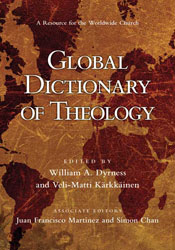 The emergent-friendly, Global Dictionary of Theology, makes a distinction between ‘Hopeful Universalism’ and ‘Convinced Universalism’:
The emergent-friendly, Global Dictionary of Theology, makes a distinction between ‘Hopeful Universalism’ and ‘Convinced Universalism’: Indeed, in the very preface of Love Wins, Bell contradicts Jesus’ teaching that few would actually be saved. Bell writes:
Indeed, in the very preface of Love Wins, Bell contradicts Jesus’ teaching that few would actually be saved. Bell writes: It is a sobering thought that Jesus went on to state in the verses immediately following His teaching on the narrow and broad roads, that false prophets would come in sheep’s clothing (Matthew 7:15-21). Such false prophets stand at the cross roads between the broad and narrow road, claiming to represent Christ, while pointing their followers toward the broad road that leads destruction, assuring them that it eventually leads to Heaven. Consider this for a minute. Isn’t this exactly what Rob Bell is doing?
It is a sobering thought that Jesus went on to state in the verses immediately following His teaching on the narrow and broad roads, that false prophets would come in sheep’s clothing (Matthew 7:15-21). Such false prophets stand at the cross roads between the broad and narrow road, claiming to represent Christ, while pointing their followers toward the broad road that leads destruction, assuring them that it eventually leads to Heaven. Consider this for a minute. Isn’t this exactly what Rob Bell is doing? Rob Bell not only redefines Hell by teaching that it will only be a temporary abode for those who want to leave later, but he redefines Hell by claiming that it is not so much about the after life, but it’s about what you make of the life here and now. In his book, Velvet Elvis, Bell had already stated this position:
Rob Bell not only redefines Hell by teaching that it will only be a temporary abode for those who want to leave later, but he redefines Hell by claiming that it is not so much about the after life, but it’s about what you make of the life here and now. In his book, Velvet Elvis, Bell had already stated this position: Rob Bell takes every possible liberty to deny reality and to either explain Hell away or get everyone into Heaven, regardless of his or her rejection of God and the Gospel. Bell not only empties Hell of God’s holy wrath, he creates an exit door from the inside out and claims that Hell is merely what we make it. He also claims that most of the imagery of future judgments in Hell were fulfilled on earth in AD 70 (p. 81).
Rob Bell takes every possible liberty to deny reality and to either explain Hell away or get everyone into Heaven, regardless of his or her rejection of God and the Gospel. Bell not only empties Hell of God’s holy wrath, he creates an exit door from the inside out and claims that Hell is merely what we make it. He also claims that most of the imagery of future judgments in Hell were fulfilled on earth in AD 70 (p. 81).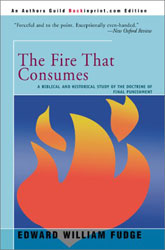 By claiming that the unrepentant wicked will have a chance to get to Heaven from Hell, Rob Bell has gone beyond that of Edward W. Fudge, who states in The Fire That Consumes,
By claiming that the unrepentant wicked will have a chance to get to Heaven from Hell, Rob Bell has gone beyond that of Edward W. Fudge, who states in The Fire That Consumes, 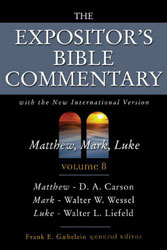 Biblical Scholar D.A. Carson, commenting on Matthew 25:46, says :
Biblical Scholar D.A. Carson, commenting on Matthew 25:46, says :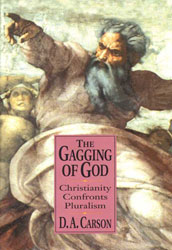 “What is hard to prove, but seems to me probable, is that one reason why the conscious punishment of hell is ongoing is because sin is ongoing.”
“What is hard to prove, but seems to me probable, is that one reason why the conscious punishment of hell is ongoing is because sin is ongoing.” There is hardly any wiggle room for a second chance in hell in these passages or anywhere in Scripture. Bell would have his readers believe of the book of Revelation that
There is hardly any wiggle room for a second chance in hell in these passages or anywhere in Scripture. Bell would have his readers believe of the book of Revelation that  May God give us the grace, in these times of apostasy, to hold fast to Jesus’ teachings and remain faithful to our loving and Holy Lord to the end. May God deliver His bride from the cotton candy Christianity that is endemic in Emergent Churches and among false prophets who lead the lost into believing they can put off repentance until after death.
May God give us the grace, in these times of apostasy, to hold fast to Jesus’ teachings and remain faithful to our loving and Holy Lord to the end. May God deliver His bride from the cotton candy Christianity that is endemic in Emergent Churches and among false prophets who lead the lost into believing they can put off repentance until after death.